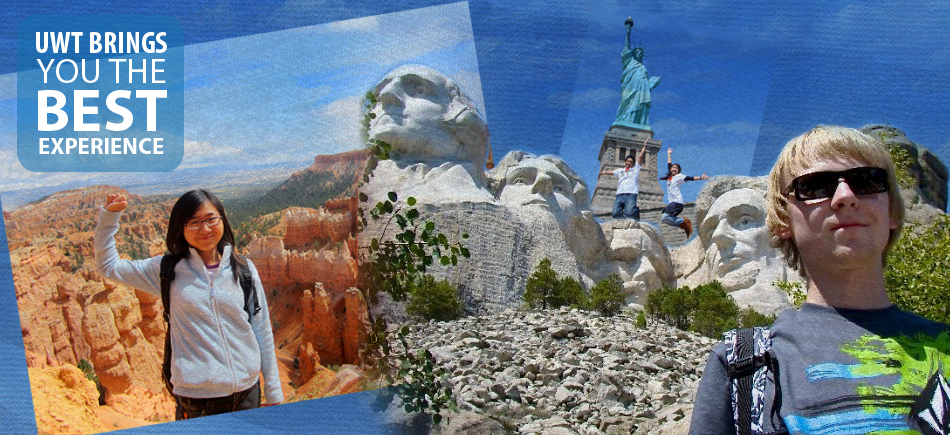Summer jobs, lifelong memories
 This summer, Irish students are finding it difficult to get seasonal jobs at home, and those who work abroad, or go away as an intern, a volunteer or on a J1, can come home with valuable life skills
This summer, Irish students are finding it difficult to get seasonal jobs at home, and those who work abroad, or go away as an intern, a volunteer or on a J1, can come home with valuable life skills
THE PROSPECT of yet another boozy sun holiday in Spain loomed as Andrew Lavelle approached his final exams at UCD in May, but the 21-year-old commerce student was looking for a more productive way to spend his last college summer than lazing on a sun lounger swilling cocktails.
On a study break from the library one afternoon, Lavelle spotted a poster advertising cultural exchange programmes in Brazil, Ghana and Romania run by Aiesec, an international youth organisation that arranges internships and placements for young people all over the world.
“I have no idea what I want to do now that I have my degree, but going to a new country on my own and meeting new people seemed like a challenging and worthwhile thing to do,” he says.
For six weeks this summer, Lavelle is stationed on the island city of Florianópolis in Brazil with six students from Mexico, Bolivia, Columbia and the Netherlands. The group is spending a few days in one of 10 selected schools, teaching the children about the culture and customs in the country they are from. Afternoons and weekends are spent surfing on one of the island’s 42 beaches, or exploring the forested interior.
“The experience has made me realise that I would like to live abroad for a few years, to learn a new language and work somewhere else,” he says. “A few of my friends have contracts with accounting firms in Dublin, but that’s not for me for the moment. This trip has inspired me.”
With an increasingly competitive market for graduate jobs here in Ireland, many Irish students are using their summer holidays to work, intern or volunteer overseas as a way to boost their CV, make contacts and gain a taste for what it is like to live in another country, according to Seán Gannon, director of the Careers Advisory Service (CAS) at Trinity College Dublin. More than half of the positions advertised through the CAS Vacwork programme this summer have been with companies overseas.
“Placements abroad can give students an opportunity to gain experience in a role that may not be available here in Ireland,” Gannon says. “Internships are also becoming a more important part of the recruitment process, especially among major multinational companies who use them to spot talent for the future. Interns who perform well during their summer placement are often invited back by the company when they finish their degree, so for those looking to move abroad when they graduate, it can be worthwhile to forge those connections early.”
But work experience doesn’t have to be career-oriented to be valuable, and employers will recognise the life skills learned by students who spend a summer abroad, no matter what the role is, says Gannon. “It gives them independence by removing them from their familiar support networks and activities. Having to organise accommodation and work in a new city and a new culture helps people to develop very useful skills for the future.”
With a shortage of summer jobs at home, going abroad to work in the retail or service industry is very attractive to Irish students who want to have fun before returning to their studies, says Caroline O’Brien, operations manager with the student travel company Go4Less.
“Young people have less disposable income now to spend on backpacking holidays around Europe or southeast Asia, which were popular a few years ago,” she says. “Working holidays have more appeal; they may not be able to save money while they’re abroad, but at least they have a chance to break even.”
ALTHOUGH APPLICATIONS for J1 visas for the US have declined over the past few years, O’Brien believes the numbers have picked up again this year, with an increasing percentage of Irish students opting to spend the summer in Canada. “They have to apply for a year’s working holiday visa for Canada, but use only three months of it. Many of them have siblings or friends who have emigrated there, and others are looking to test the water to see if it is somewhere they would like to live when they finish their degree,” she says. “For some, the work they do during the summer could lead to sponsorship or to a job offer for the future.”
Seasonal work in the US is not as easy to get as it was, but the situation is improving, and a little preparation goes a long way, according to Celine Kennelly of the Irish Immigration Pastoral Center in San Francisco, which has dealt with more than 500 J1 students this year.
“Most of them have found work at this stage, but those who came earlier in the summer were more successful. Just two weeks can make a huge difference; there are only so many jobs,” she says. “Having an American-style resumé prepared before arrival really helps too.”
The biggest challenge J1 students faced this year was finding accommodation, as the reputation of Irish students has been damaged by high-profile incidents of antisocial behaviour and vandalism in Santa Barbara and San Diego, where apartments and houses were trashed.
“Unfortunately, the behaviour of a few has made things very difficult for those who have come over here after them. Many landlords have stopped renting to J1 students because they don’t respect the property that is rented to them, but we warn all the young people we deal with to behave themselves because the reputation of Irish people is in their hands,” says Kennelly.
“The J1 summer is fun, and that’s the draw for most of the Irish students who come out here with their friends. If they are lucky enough to get a good job it can give them valuable experience that looks great on their resumé when they go back home, as well as having a great summer.”
Read J-1 Student, intern and volunteer testimonials on the original posting website, http://www.irishtimes.com/newspaper/




